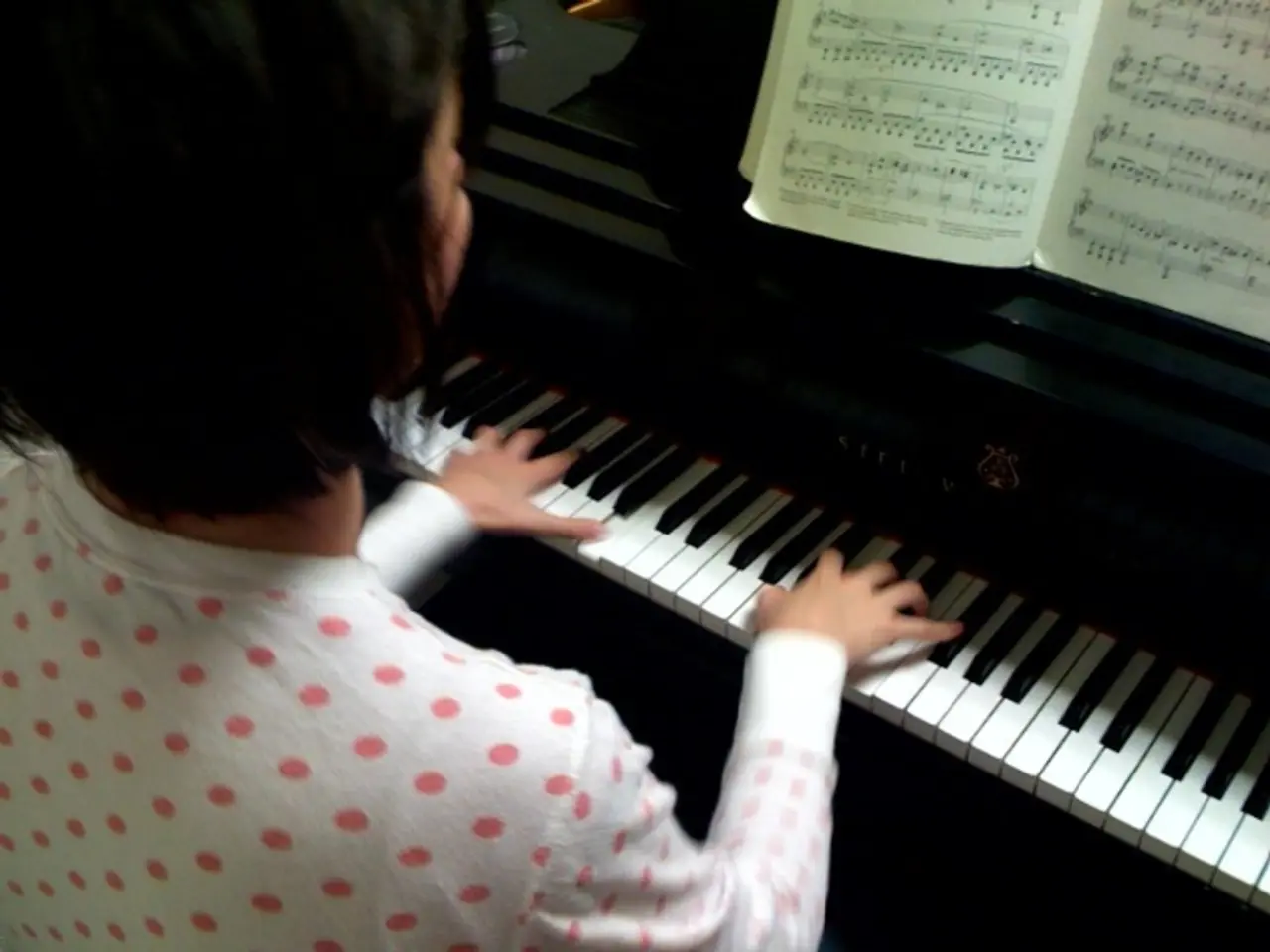Piano Instructor's Dilemma: Striking a Balance between Artistry and Instruction
In the world of piano teaching, a shift in focus from performance to education has been a common occurrence. Many piano teachers, once aspiring concert pianists, found themselves overqualified for the job of teaching beginner piano students. This transition, while necessary, has not been without its challenges.
One of the most significant issues that piano teachers face is the neglect of their own piano practice. Prolonged absence from music can lead to what experts call "academic starvation," a decline in a teacher's playing skills, technical proficiency, and artistic sensitivity. This can reduce their confidence and effectiveness in demonstrating techniques or inspiring students.
Continued practicing and learning help piano teachers maintain problem-solving strategies that are active and agile. Personal practice is crucial for teachers to maintain their technical skills, deepen their interpretative insights, and stay engaged emotionally with the music. Without regular personal practice, teachers may lose this connection and become less enthusiastic or feel less authentic in their teaching, harming both their own motivation and the quality of instruction they provide.
Moreover, teaching without practicing may cause a teacher to rely heavily on theoretical or secondhand knowledge rather than experiential understanding. The practice process also nurtures a teacher's understanding of learning strategies, problem-solving approaches, and attention to detail that are essential to effective pedagogy.
The inspiration for piano teachers comes from music masterpieces, piano concertos, and symphonies. Keeping a concert date booked ahead can provide a challenging focus for a teacher's practicing. Returning to previously played music can help piano teachers overcome frustration and rekindle their passion for music.
It is the responsibility of piano teachers to ensure the concert pianist inside them survives their teaching routine. The best way to help students understand classical music is by providing them with a digestible version of what the teacher does daily.
Piano teachers have reached a critical inflexion point in their musical careers. They can choose to let themselves drift into professional frustration or redefine the way they organize their musical and professional lives. One year passed, and the piano teachers had not yet created the "true genius" they once envisioned.
For piano teachers who are both performers, reading the article "pianistic abstinence" may be of interest. The article discusses the effects of prolonged absence from music and offers insights on how to maintain a balance between teaching and personal practice[1][2][3][4]. The right number of hours a teacher needs to invest in studies to stay fit varies, but a suggested range is between two and four hours.
In summary, continual personal piano practice supports a teacher’s motivation and performance ability by maintaining their playing skills, artistic engagement, and reflective insights—all of which enhance their teaching quality and personal fulfillment in their role[3][4]. Conversely, neglecting practice can result in skill stagnation, reduced motivation, and less effective teaching.
[1] Our Website. (2021). The Importance of Regular Practice for Musicians. Retrieved from https://www.ourwebsite.com/post/importance-practice-musicians [2] Our Website. (2021). Overcoming Frustration in Piano Practice. Retrieved from https://www.ourwebsite.com/post/overcoming-frustration-piano-practice [3] Our Website. (2021). Balancing Teaching and Personal Practice for Piano Teachers. Retrieved from https://www.ourwebsite.com/post/balancing-teaching-personal-practice-piano-teachers [4] Our Website. (2021). The Role of Experiential Learning in Piano Pedagogy. Retrieved from https://www.ourwebsite.com/post/role-experiential-learning-piano-pedagogy
A beginner piano teacher, despite their expertise as a composer, may struggle due to neglect of their own music practice, leading to academics starvation and a decline in their teaching effectiveness. To maintain their technical skills and artistic sensitivity, it's essential for teachers to devote regular hours to personal practice, as suggested in the article "Pianistic Abstinence."






